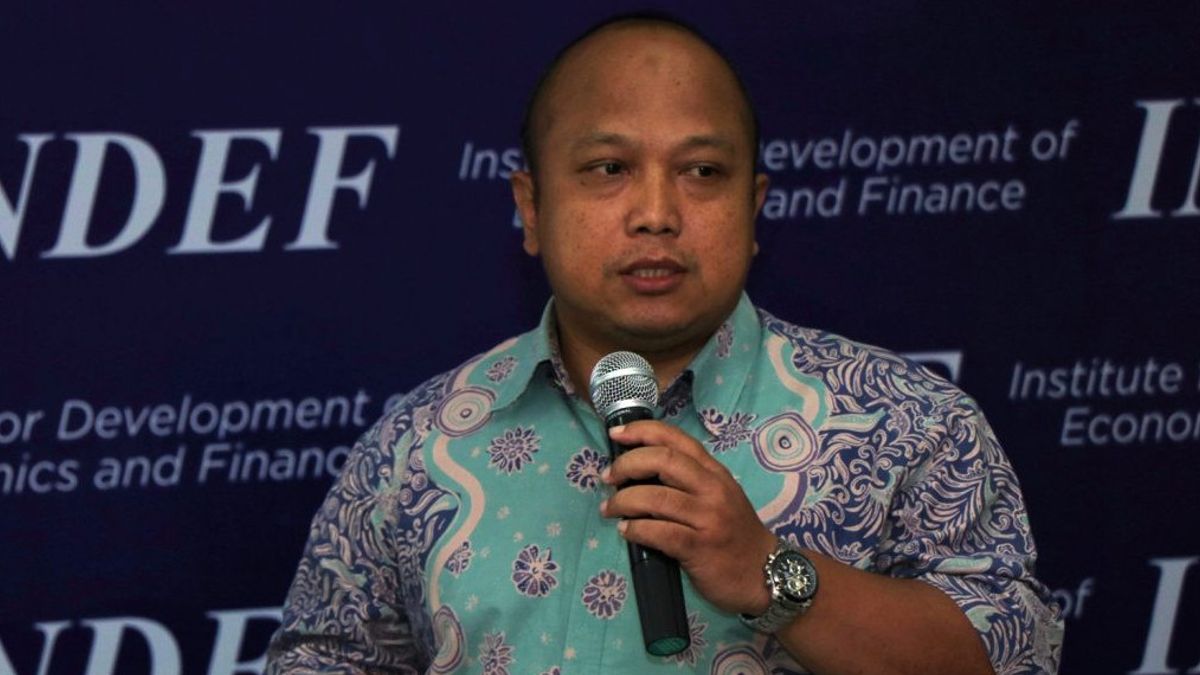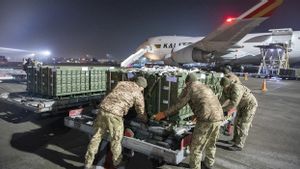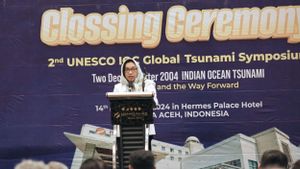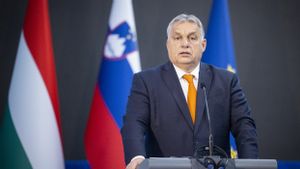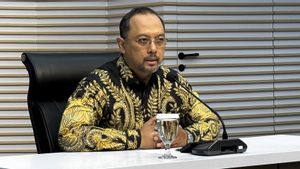JAKARTA - The plan to increase Value Added Tax (VAT) to 12% next year is again in the spotlight amidst the decline in people's purchasing power.
The increase in the VAT rate has been stipulated in the Law on Harmonization of Tax Regulations (UU HPP) to increase in January 2025 to 12%, from the current level of 11%.
Meanwhile, corporate income tax is planned to be cut from 22% to 20%. This is done to encourage Indonesia's competitiveness.
Responding to this, senior researcher at the Institute for Development of Economics and Finance (INDEF) Tauhid Ahmad said that the government's discourse to increase Value Added Tax (VAT) from the original 11% to 12% is considered to reduce the potential for economic growth.
"Because if business actors are burdened with an increase in VAT from 11 percent to 12 percent, it will certainly increase production costs. When production costs are charged to the final product and there is a price increase which is then charged to consumers, then it will automatically happen massively that consumers will reduce other shopping expenses," said Tauhid in his statement, Wednesday (11/13/2024).
Because the increase from one product to another will have implications for double counting in VAT calculations. Where when the goods are in one hand to the last hand, it is feared that it will become a burden.
"The increase in VAT will certainly have consequences for declining economic growth. Among them are high inflation, declining purchasing power of the community, then having a negative effect on companies or industries that are very sensitive to the increase in VAT from 11 percent to 12 percent. And it is also feared that it will reduce employment," explained Tauhid.
Tauhid further said, if studied from the increase in VAT in 2022-2023 from 10% to 11%, there is additional state revenue of over 100 trillion. However, it resulted in stagnation of economic growth, especially public consumption in 2024, and this is the effect of the previous year's VAT increase.
Related to this, INDEF recommends that the government postpone the VAT increase until the domestic economy has recovered sufficiently and obstacles from the global economy can still be anticipated. Because in many countries, VAT does not have to be 12 percent. In fact, a number of countries still impose a VAT rate of only 10 percent,
"Other efforts include carrying out extensification or intensification so that it is expanded not to the increase in the VAT rate itself, but the efforts of the Ministry of Finance (Kemenkeu) to intensify the VAT increase. Is it the use of expanding the taxpayer base or the use of technology, so that the VAT is greater without having to increase the rate from 11 percent to 12 percent," he said.
Meanwhile, regarding the nutritious lunch program, Tauhid Ahmad reminded the government to be aware of the risk of increasing the amount of food imports.
Moreover, he continued, there are still quite a lot of food ingredients that cannot be fulfilled domestically.
"It seems like most of [the food ingredients] are imported, for example rice. Even without free lunch, we already import, yesterday 2 million tons, almost 3 million tons," said Tauhid.
For that, he emphasized the importance of involving local micro, small and medium enterprises (MSMEs) to strengthen the supply for this lunch program and reduce food imports.
By involving local MSMEs; farmers, goods providers, to local implementers, it is hoped that they can increase their business income, instead of having to partner with large entrepreneurs.
Thus, said Tauhid, this free lunch program is expected to not only have a positive impact on children's health, but also have a significant economic impact on local business actors.
"Rather than having to partner with large entrepreneurs, [involve] independent farmers to provide eggs or free-range chicken meat. So that they can be more involved. Yes, that is the economic impact there. I think that is the biggest, that is the most visible impact later," he explained.
President-elect Prabowo Subianto's key campaign promises included a promise to provide free lunches to nearly 83 million school children, who require more than 6 million tons of rice, 1 million tons of chicken meat, and 4 million kiloliters of fresh cow's milk each year.
The plan is intended to improve children's health outcomes and create new opportunities for local businesses to provide the program.
"The positive side is of course that there is food security, nutritional availability, and improvements in the health of our children in Indonesia. But this must be medium to long term, then the impact on the quality of human resources [HR] will be seen. So health is fulfilled first, then there are improvements in the input side and finally education," he concluded.
In a separate location, the Director of Economics at the National Police Intelligence and Security Agency (Baintelkam) Brigadier General. Pol. Ratno Kuncoro took a proactive step by absorbing aspirations from economic experts in Indonesia.
This step was taken to hear directly the challenges and needs faced in domestic economic growth in order to improve the economy and national economic security.
In a recent meeting, economic observers from INDEF shared their views on various economic issues, ranging from inflation causes, the US-China trade war, regulatory support, to problems in government programs related to food security.
Kuncoro said that the results of this dialogue will be followed up seriously as an effort to strengthen a conducive, safe business climate and achieve economic growth in accordance with the direction and goals of President Prabowo.
"The absorption of these aspirations is part of the commitment of the Chief of Police, General Listyo Sigit Prabowo, in supporting the growth of the national industry, while ensuring security stability which is the main foundation for economic development," he said.
Kuncoro said that this follow-up step will also be in line with the direction of President Prabowo Subianto, who emphasized the importance of creating synergy between the security and economic sectors to increase Indonesia's competitiveness in the global arena and contribute to national economic growth.
The English, Chinese, Japanese, Arabic, and French versions are automatically generated by the AI. So there may still be inaccuracies in translating, please always see Indonesian as our main language. (system supported by DigitalSiber.id)
